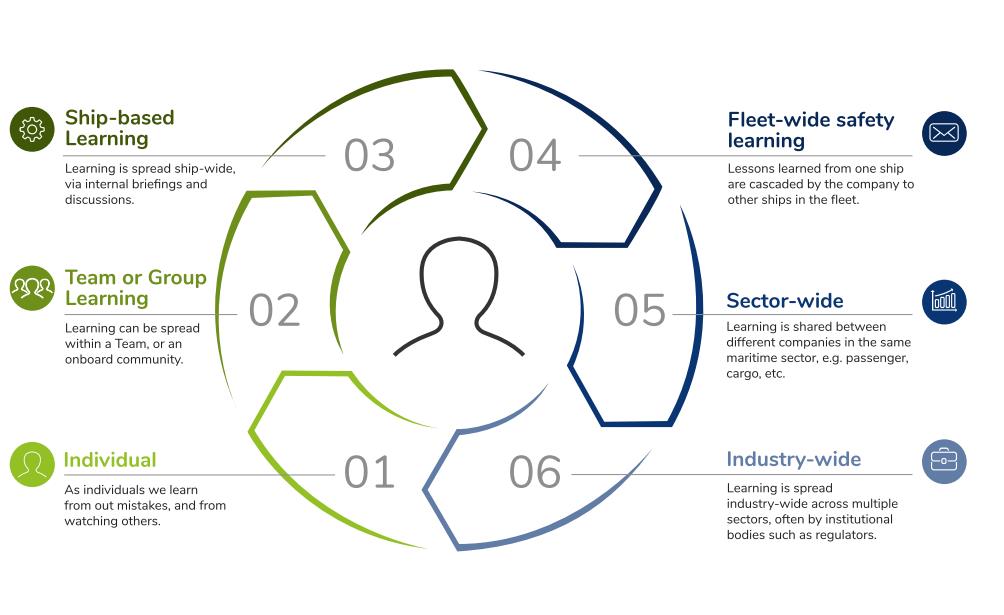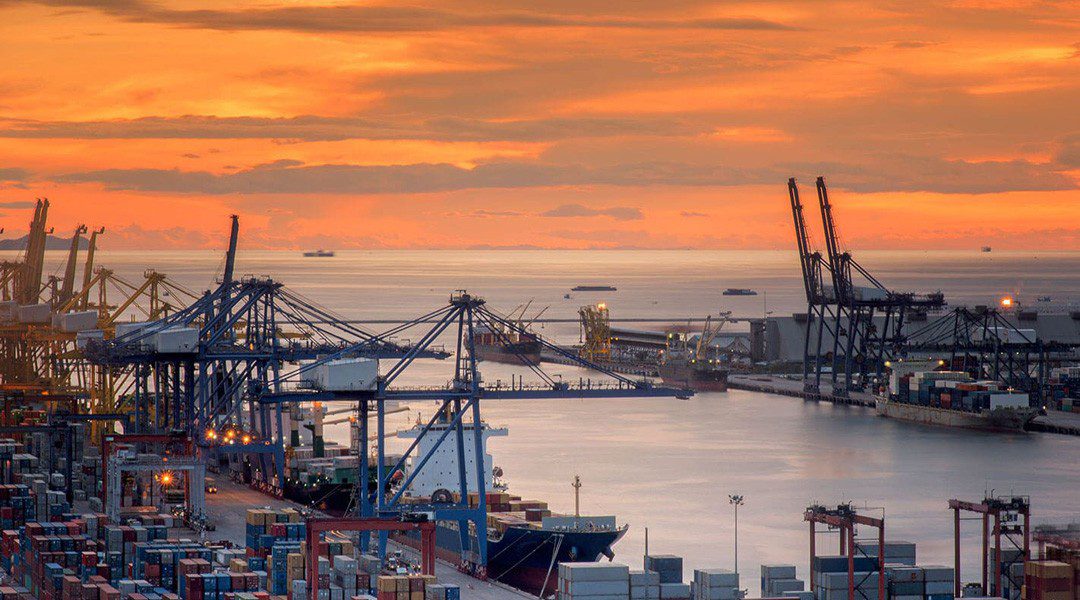The EU-funded SAFEMODE project highlights the need to evolve a simple database in which accidents are being reported into an evidence base from which the most common and severe accidents, as well as their causes and contributory factors, can emerge.
Rather than learning from each individual accident, more general and even system-wide lessons can be drawn by looking across different events, and the resultant lessons can have a more powerful impact on safety.
The ideal is to have this kind of active database and evidence base from which to learn; an active learning platform whose analysis can guide safety improvements.
Six Safety Learning Levels
Safety learning can occur at various levels in the industry
 Source: SAFEMODE White Paper
Source: SAFEMODE White Paper
10 key learning platforms for Lessons Learned
1. GISIS (Global Integrated Shipping Information System) by IMO contains data on incidents of piracy; marine casualties and incidents; IMO numbers and ship company particulars etc.
2. EMCIP (European Marine Casualty Information Platform) is a database and a data distribution system operated by EMSA, the European Commission and the EU/EEA Member States.
3. MARS (Mariner’s Alerting and Reporting Scheme) by The Nautical Institute includes lessons learned and a wide resource library.
4. CERS (Consolidated European Reporting System) by the UK MCA encourages accidents reporting of ships over 300 gross tonnage, carrying dangerous or polluting goods
5. MAIB (Marine Accident Investigation Branch) by the UK Department of Transport publishes investigation reports, safety studies, and lessons learned from maritime accidents.
6. NTSB (National Transportation Safety Board) provides details about maritime accidents, analysis of the factual data, conclusions, probable cause safety recommendations.
7. TAIC (Transport Accident Investigation Commission) of New Zealand analyses evidence of maritime accidents to determine what happened and report findings and recommnedations.
8. BSU (Bundesstelle für Seeunfalluntersuchung) registers and investigates all types of marine casualties on board or with the involvement of German flagged ships world-wide.
9. DMAIB (Danish Maritime Accident Investigation Board) investigates accidents on Danish and Greenlandic ships, and accidents on foreign ships in Danish and Greenlandic water.
10. SHIELD (Safety Human Incident & Error Learning Database) by SAFEMODE enables systematic analysis and collection of Human Factors elements in safety occurrences (/accidents)





